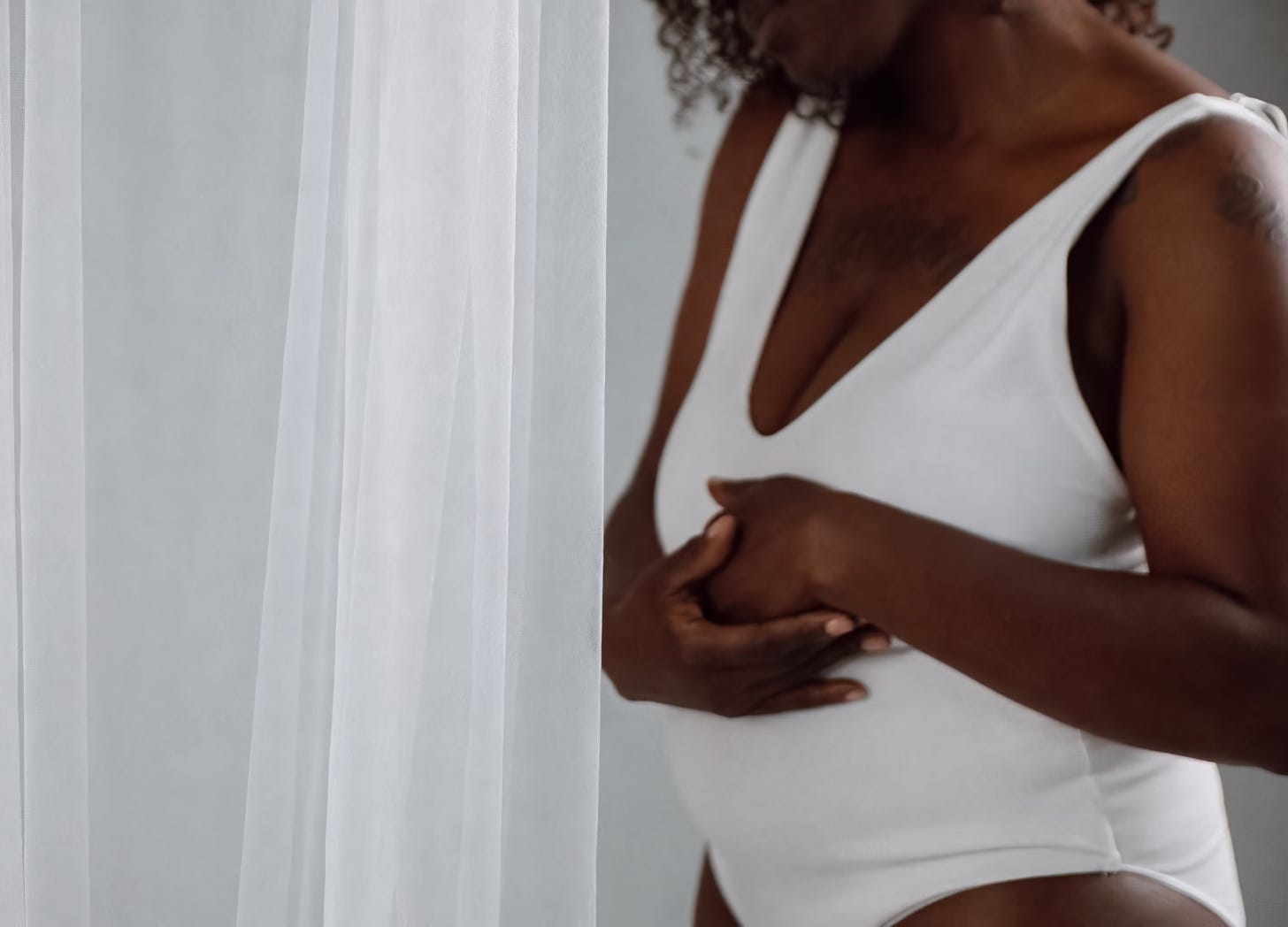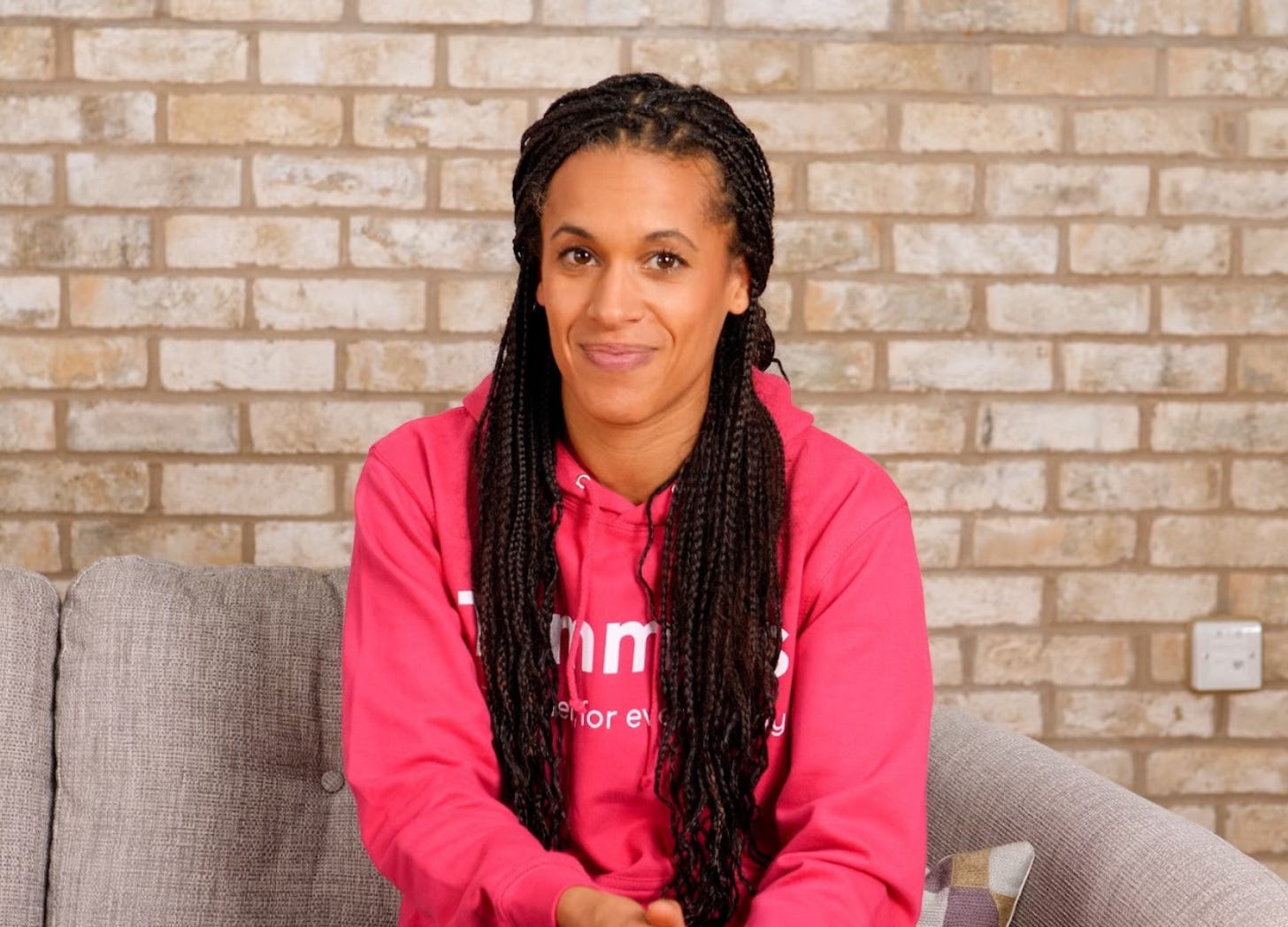Four ways women should be supported after miscarriage
The forgotten care women deserve after miscarriage that no one thinks about.

By Shakira Akabusi
One in five pregnancies end in miscarriage. Over half of us know someone who has experienced baby loss.
It happened to our mothers, our grandmothers and those who came before them. For too long it has been a private pain, suffered alone.
Now, we are starting to talk. We are telling family, friends, perhaps our employers. We are not keeping our loss secret if it happened before 12 weeks.
We are refusing to pretend it’s ‘better’ if we don’t see, hold, name or talk about a baby lost later in pregnancy.
But there is still huge inequity and devastating gaps in funding and healthcare. Many of us struggle in isolation with needs that are not even acknowledged, let alone supported. That’s why I partnered with the pregnancy and baby charity Tommy’s as a postnatal fitness expert to create the movement part of their Wellbeing after Miscarriage programme.
Support our relationship with our body
Pregnancy loss is the only embodied loss. It’s a bereavement that happens in our body, changing it painfully and forever.
We might hold our grief there, losing confidence and trust in our body or resenting it for ‘failing’ to do what it ‘should’.
We need to be told that our bodies are incredible and capable of so much. We need to have space to reconnect with them with self-compassion and in a positive way.
Support our postnatal physical health
Pregnancy and miscarriage can change us physically. We might struggle with sickness and move less than we’d like to. Our joints are affected from early pregnancy onwards, becoming looser and less stable as pregnancy progresses. We may gain weight, lose blood or experience pain.
After a second trimester miscarriage or later loss, we might experience some pelvic floor dysfunction, Diastasis Recti (separated abdominal muscles) and breasts that leak milk. Movement can help us to feel fitter and stronger whilst also improving our mental and emotional health.
But it feels overwhelming to be surrounded by babies at postnatal exercise classes.
We need the opportunity to recover physically in a sensitive space, with care and without reminders of what we have been through.
Support our mental health
Anxiety, depression and PTSD symptoms are common after a miscarriage. Many of us carry trauma for a long time. We grieve on dates others forget. We feel it when pregnancies are announced, and when babies arrive. We know how old our child would be now.
We need support to understand our grief, cope with hormonal changes and manage our mental health. We need help to talk about our loss with our partner, our family, our friends. We need to find ways to grow around our loss and move forward.
For those of us who have recurrent losses, we need more support each time. We will never ‘get used’ to loss.
Support us with our next pregnancy
Many of us want to try again. We want a baby so much that we find the incredible strength to put ourselves through the anxiety, uncertainty and terror of pregnancy after loss.
But we need support. We need to do something differently this time, if we can. We want information on preconception care and how we can reduce our risk of another miscarriage.
Most of our pregnancy apps don’t recognise loss. They don’t offer support to manage the fear of wetness in our underwear or a twinge of cramp, the constant assessing of symptoms, the trauma of returning to the same place for scans and appointments.
We need sensitive support throughout our pregnancy journey, recognising that for us, a positive pregnancy test does not always lead to a baby, while acknowledging our hope that it will.
Related articles
We see you
If you need this support then Tommy’s free, online Wellbeing after Miscarriage programme is a good place to start. It includes physiotherapist-led sessions to help you strengthen your core and pelvic floor and reconnect with your body, workouts to help you start or get back into exercise, mental health support led by a specialist counsellor and access to expert information and peer support spaces online. You can also sign up to get the programme via email. You are not alone.
Shakira Akabusi, a women’s health expert and a pre and postnatal exercise specialist, is also a speaker, TV fitness presenter and author of the StrongLikeMum Method. Having founded StrongLikeMum in 2015, Shakira is passionate about supporting women to enjoy an active and healthy lifestyle from pregnancy and postnatal through to peri and post-menopause.
Find Shakira on Instagram here or find out more about her app here at stronglikemum.gcph.tv/.





